Members
Ashleigh Owens

Senior Advisor
Shift
Ashleigh Owens is a Senior Advisor with Shift, a New York based non-profit that works with a wide range of government agencies, Fortune 500 companies, NGOs, trade unions, major investors and financial institutions to provide companies around the world with practical, context-specific advice on how to ensure respect for human rights. Ashleigh leads Shift’s work with financial institutions and investors, supporting them to model and move markets to reward respect for human dignity. Prior to relocating to NYC in 2018, Ashleigh was Executive Director at EY Climate Change & Sustainability Services in Tokyo, in which role she helped leading companies to embed sustainability into their strategy, operations and disclosures. Ashleigh was previously a lawyer with Herbert Smith Freehills in the Dispute Resolution team, advising on labour, competition and international law matters. As social expectations of companies began racing ahead of legal obligations, Ashleigh headed to EY and then Shift, by way of the United Nations University, OHCHR and the UN Global Compact, to work together with companies and standard setters as they shape the capitalism of the future. Ashleigh has a Master of Science in Sustainability from the United Nations University, a Bachelor of Laws and a degree in Asian Studies and is fluent in Japanese.
Jaehyang So
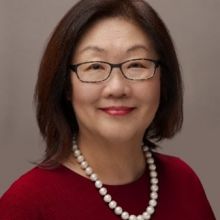
Chair of the Technical Committee
Global Water Partnership
Jaehyang (“Jae”) So is the Chair of the TEC (Technical Committee) of the Global Water Partnership, a global action network with over 3,000 partner organizations in 179 countries.
Jae worked for 30 years at the World Bank Group on a range of development topics, from infrastructure, water, urban development, gender, and public-private partnerships. As Director of Trust Funds and Partnerships, Jae strengthened the World Bank’s corporate and fiduciary management by reforming and simplifying the policy and transactional framework for 45 billion US dollars in external funds under management. Jae was the architect of the World Bank’s Public-Private Infrastructure Database, an innovative product that serves as the sector's global market leader.
Jae was honorary Sustainable Development Goal Professor of the Ban Ki-Moon Center, Institute of Global Engagement and Empowerment, Yonsei University. She advised the launch of the Global Center on Adaptation. Jae served on the boards of the Global Water Challenge and the Water Supply and Sanitation Collaborative Council. In 2017, she was awarded the Republic of Korea Prime Minister Citation for promoting Gender Equality.
Before joining the World Bank Group, Jae worked at Monitor Company in Massachusetts, advising Fortune 100-level companies on corporate strategy in Canada, Europe, Japan, and the United States. She holds an MBA and a BA in Economics from Stanford University.
Linda A. Hill
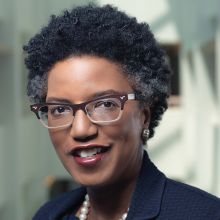
Wallace Brett Donham Professor of Business Administration
Faculty Chair, Leadership Initiative
Harvard Business School
Linda A. Hill is the Wallace Brett Donham Professor of Business Administration at the Harvard Business School and chair of the Leadership Initiative. Linda is regarded as one of the world’s top experts on leadership. Linda was named by Thinkers50 as one of the top ten management thinkers in the world in 2013 and received the Thinkers50 Innovation Award in 2015. Linda is the author or co-author of several award-winning articles and books including Collective Genius: The Art and Practice of Leading Innovation, Being the Boss: The 3 Imperatives of Becoming a Great Leader and Becoming a Manager: How New Managers Master the Challenges of Leadership. Her TED talk on how to manage for collective creativity has over 2 million views.
Linda’s research and consulting focuses on leadership development, leading change and innovation, and implementing global strategies. In 2014, Linda co-founded Paradox Strategies—an advisory and research firm that advises organizations and boards on leadership and innovation.
Linda is a member of the Board of Directors of Relay Therapeutics and the Board of Trustees of the ArtCenter College of Design. Linda serves on the advisory boards of several organizations including the American Repertory Theater, the Aspen Institute Business and Society Program, the California Institute for Telecommunications and Information Technology (Calit2), Eight Inc., the Morgan Stanley Institute for Sustainable Investing, and the United Nations Institute for Training and Research. Linda sits on the board of the Global Citizens Initiative, Inc. and is a Special Representative to the Board of Trustees of Bryn Mawr College.
Linda completed a post-doctoral research fellowship at the Harvard Business School and earned a Ph.D. in Behavioral Sciences at the University of Chicago. Linda has a B.A., summa cum laude, in psychology from Bryn Mawr College.
Michael A. Fors
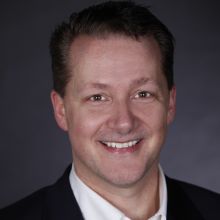
Executive Leader, Corporate Division and Business Unit Development
Boeing
Michael A. Fors, Ph.D., is Executive Leader of corporate division and business unit development at Boeing. His team works to transform the business and develop workforces systematically as part of the 4th industrial revolution. Before Boeing, Michael was an Executive Leader at Microsoft, digitally transforming Microsoft divisions. Michael led a P&L comprised of 350 ex-CIO consultants, who digitally transform Microsoft customers. Michael also led a business strategy team working across Microsoft divisions.
Before Microsoft, Michael was Chief Learning Officer of Intel University. Michael is an adjunct professor at Stanford University, Columbia University, and the University of Washington, teaching innovation, entrepreneurship, the Future of Work, and Leadership/Executive Development. Michael is a member of the World Economic Forum, the Global Engineering Deans’ Council, ReWork America, & the International Federation of Engineering Education Societies. Michael is Chairman of the Advisory Board for the United Nations Institute for Training and Research, Division for Prosperity, leading United Nations programmes for post conflict and developing nations.
Sarah Anyang Agbor
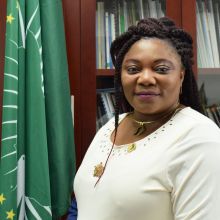
Vice President
Forum for African Women Educationalists (FAWE) Africa Board
Sarah Anyang Agbor is Vice Chairperson of the Governing Board of the UNESCO Institute for Lifelong Learning (UIL) as well as the Vice President, Africa Board, Forum for African Women Educationalists (FAWE). Sarah is a Trustee Board Member of the African Progress Group (APG) and Board Member of Coalition on Media and Education for Development Africa Forum (CAFOR). Sarah is the African Union (AU) Consultant for Policy Renaissance leading the AU project in providing strategic support and establishing key links with the AU decision-making machinery that shapes the opportunities for current and future foundation interventions.
In 2017, Sarah was elected as the AU Commissioner for Human Resources, Science & Technology which consists of three divisions: Education, Youth and Capacity Development, Science and Technology and headed several bodies. From 2017 to January 2022, Sarah ensured the coordination of AU policies and programmes on human resource development matters, science and technology as well as encouraged and provided technical support to Member States and RECs in the implementation of continental strategies such as CESA 16-24, STISA 2024 and the TVET strategy. Sarah also played key roles in promoting research and development and inter-African cooperation on education and training, encouraging youth empowerment and participation in the integration of the continent.
Following the reform of February 2021, the department was renamed Education, Science, Technology, and Innovation. Sarah has over 22 years’ experience in the field of Academia. Sarah is a Professor of African and Commonwealth Literature. Sarah was Inspector of Academic Affairs No 1. at the Ministry of Higher Education, Cameroon. Previously, Sarah was the Deputy Vice Chancellor in Charge of Research, Cooperation and Relations with the Business World in the University of Bamenda, Cameroon. Sarah has written several academic books and other publications. Sarah was Fulbright Scholar-in-Residence to the University of Scranton, Pennsylvania, USA. Sarah is from Cameroon. In 2019, Sarah was named among the Inaugural List of 100 Most Influential African Women by Avance Media.
Tetsuo Kondo
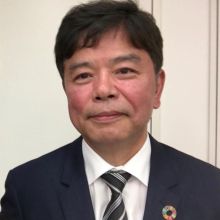
Visiting Professor, Development and Global Health Policy
Former Director of the United Nations Development Programme Representation Office in Tokyo
Tetsuo Kondo is the former Director of the United Nations Development Programme (UNDP) Representation Office in Tokyo.
He served as Country Director of UNDP Chad, Deputy Resident Representative of UNDP Kosovo, Senior Humanitarian Coordination Advisor of the United Nations Integrated Mission in Timor Leste, Senior Advisor of UNDP Regional Centre in Bangkok, Special Advisor to the UN Special Representative of the Secretary-General at the UN Mission for Assistance to Iraq, and Special Advisor to the Bureau for Resources and Strategic Partnerships in UNDP New York.
Prior to the United Nations, he held various positions with the Ministry of Foreign Affairs of Japan, including Vice-President of UNDP/UNFPA Executive Board, First Secretary in the Permanent Mission of Japan to the United Nations, and Assistant Director of the Law of the Sea Office of Treaty Bureau.
He holds an M.A. in Development Studies from Jones International University (USA) and a B.A. in Economics from Tokyo Metropolitan University (Japan).
He currently serves as visiting professor of development and global health policy at Sophia University, University of Tokyo, Kyoto University, Nagasaki University, and Kanazawa Institute of Technology.

